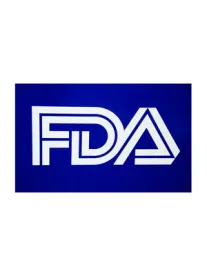On September 19, 2014, the Food and Drug Administration (FDA or the Agency) issued a supplemental notice of proposed rulemaking1 to amend certain provisions of its proposed rule on Foreign Supplier Verification Programs for Importers of Food for Humans and Animals (the FSVP proposed rule), which was originally published in July 2013 as part of FDA’s implementation of the FDA Food Safety Modernization Act of 2011 (FSMA).2 These proposed revisions address some of the comments that FDA received in response to the original FSVP proposed rule and make changes to harmonize it with other recently revised proposed rules, in particular the proposed rule on Current Good Manufacturing Practice and Hazard Analysis and Risk-Based Preventive Controls for Human Food (Preventive Controls proposed rule).
This client alert includes a summary of the proposed revisions to the FSVP proposed rule, and key issues that industry should monitor and consider for comments. We also release today our client alerts on proposed revisions to the proposed rule on human food safety, the proposed rule on animal food safety, and the proposed rule on produce safety.3
The 75-day comment period opens Monday, September 29, 2014 and will close on Saturday, December 13, 2014. FDA encourages stakeholders to review the proposed revisions and provide comments, where warranted, but FDA is not accepting any additional comments on the original proposal.
SCOPE AND DESCRIPTION OF THE REVISED FSVP PROPOSED RULE
Like the original proposal, the revised FSVP proposed rule would apply to the activities of an importer, which is the entity in the United States that is the purchaser of the food at the time of entry or, if no such purchaser exists, is the consignee of food at the time of entry. Foreign suppliers are those entities abroad that last manufacture or process the food (except for de minimis activities, such as the addition of labeling). The FSVP proposed rule covers imported food generally, with the exception of some products exempted or subject to modified requirements.4
The FSVP proposed rule would require that importers establish an FSVP to ensure that suppliers are manufacturing food in accordance with the requirements of the Federal Food, Drug and Cosmetic Act (FDCA), as amended by FSMA. The content of an FSVP can include on-site audits, lot-by-lot sample testing, review of food safety records, and other appropriate procedures. We discuss the most significant revisions to the FSVP proposed rule below.
REVISIONS TO THE COMPLIANCE STATUS REVIEW
The original FSVP proposed rule required that the importer conduct a compliance status review of the foreign supplier before determining the appropriate verification activities. A compliance status review would determine whether, for example, the foreign supplier had been the subject of FDA warning letters or import alerts, which are available on FDA’s website. It was not clear, however, whether the original proposal would require a review of non-public enforcement records, such as Form 483s, that the importer might only obtain from the foreign supplier or from FDA via a Freedom of Information Act request. Once the importer completed the compliance status review, it would then conduct an analysis of the hazards associated with that particular supplier’s operations.
The proposed revisions integrate consideration of the risks associated with the supplier into a broader risk evaluation section. In considering the risks associated with the supplier and imported food, the importer would need to consider:
-
the hazard analysis conducted by the foreign supplier;
-
the entity that will be controlling the identified hazards;
-
the foreign supplier’s food safety procedures, processes, and practices;
-
the foreign supplier’s compliance with relevant FDA regulations, evidenced by import alerts or warning letters;
-
the foreign supplier’s food safety performance history, including testing and audit results; and
-
other factors such as transportation and storage considerations.
The preamble to the proposed revisions indicates that FDA will not expect importers to consider non- public information, unless the foreign supplier provides that information to the importer.
REVISIONS TO THE HAZARD ANALYSIS
FDA made significant revisions to the hazard analysis section of the FSVP proposed rule. The importer must conduct a hazard analysis prior to determining the necessary verification activities for a foreign supplier. We describe some of the more significant changes below.
The proposed revisions modify the language describing the standard for hazard analysis. FDA proposes to change the language in the FSVP proposed rule from requiring an evaluation of hazards “reasonably likely occur” to requiring an evaluation of “known or reasonably foreseeable hazard[s].” FDA proposes this change to be more consistent with the statutory language of FSMA, and to address comments expressing concern that the “reasonably likely to occur” language comes from prior HACCP regulations and could be misunderstood to mean that all such hazards must be addressed at critical control points.
FDA proposes to define a hazard “reasonably likely to occur” as a “biological,5 chemical (including radiological),6 or physical hazard that is known to, or has the potential to be, associated with a food or the facility in which it is manufactured/processed.” An importer must analyze these hazards according to experience, illness data, scientific reports, and other information to determine whether they are “significant hazards,” which FDA proposes to define as a known or reasonably foreseeable hazard for which a person who is knowledgeable about safety manufacturing, processing, packing, or holding would establish controls to minimize or prevent the hazard.
In addition, FDA has determined that importers must evaluate economically motivated hazards in determining the scope of the verification necessary for foreign suppliers. The primary example that FDA gave in the original FSVP proposed rule was the use of melamine in pet food and ultimately in infant formula from China. The Agency had considered placing these requirements in the proposed rule on intentional adulteration, but ultimately rejected that approach. Therefore, FDA determined that because some economically motivated hazards should be regarded as known or reasonably foreseeable, they should be included in the FSVP proposed rule. The Agency also noted, however, that because a hazard is defined as an adulterant that is reasonably likely to cause illness or injury, importers would not be required to consider adulterants that only affect quality or value.
FDA also proposes to require importers to analyze environmental pathogens when ready-to-eat food is exposed to the environment prior to packaging.
CLEARER REQUIREMENTS FOR SUPPLIER VERIFICATION
The proposed revisions make two significant changes to the provisions regarding supplier verification in the original FSVP proposed rule. First, the proposed revisions would relieve importers of the burden of keeping a list of foreign suppliers. Instead, importers would need to establish and follow written procedures to ensure that they obtain food from “approved” foreign suppliers. The suppliers would be approved on the basis of the risk evaluation that the importer conducts of the supplier as described above.
In some cases, however, FDA acknowledges that the importer might justify using a non-approved supplier on a temporary basis. In those circumstances, the importer would take other measures to verify the supplier. The Agency notes that such measures might include sample testing of individual shipments from the supplier.
Second, FDA now proposes to require that importers conduct at least one on-site audit of a supplier when they determine that a hazard that could cause serious adverse health consequences or death to humans or animals (SAHCODHA hazard) exists. Thereafter, the importer must conduct an annual on-site audit, unless the importer determines that other verification activities and/or less frequent on-site auditing are appropriate. FDA anticipates providing guidance to stakeholders about how to appropriately make these determinations. FDA officials characterized this proposed change as a hybrid of two options in the original FSVP proposed rule.
The proposed revisions also make two changes to further align the FSVP with other proposed rules under FSMA. First, under the originally-proposed supplier verification provisions, there would not be a separate requirement for microbiological hazards. The proposed revisions now would require that the importer verify that the foreign supplier is producing food in compliance with policies and procedures that provide at least the same level of public health protection as under the Preventive Controls proposed rule and the produce safety rule. Therefore, with respect to microbiological hazards, the importer would have to verify that the foreign supplier is taking steps to ensure the same level of protection as under those rules and that the food is not adulterated or misbranded within the meaning of the FDCA.
Second, no FSVP is required when importers or customers accomplish the same ends through the Preventive Controls proposed rule. Specifically, when the importer is required to (and does) establish a risk-based supplier program for either human or animal food under those respective preventive controls proposed rules, then the importer may be deemed in compliance with the FSVP.
Similarly, when an importer’s customer is required to establish and maintain a risk-based supplier program under the human or animal food preventive controls rules, then the importer will not need to establish and implement an FSVP, provided that the importer obtains written assurances from its customer on a yearly basis that the customer remains in compliance.
In addition, the importers would not be required to make full audit reports available to FDA. In proposing this change, FDA is addressing concerns that importers will be less likely to conduct on- site audits if they are required to make the entire report available to FDA. Instead, FDA will require that importers maintain the following documentation related to an audit: the audit procedures, the dates of the audit, the conclusions of the audit, any corrective actions taken in response, and documentation proving that the audit was conducted by a qualified auditor.
MODIFICATION TO STANDARD FOR VERY SMALL IMPORTERS AND FOREIGN SUPPLIERS
The original FSVP proposed rule contained modified requirements for “very small importers” and “very small foreign suppliers.” The original FSVP proposed rule defined these two types of entities as those with average annual sales over three years of less than $500,000. Under the proposed revisions, FDA has modified that ceiling to 1 million dollars.
It is unclear exactly what the modified requirements for these entities ultimately will be or whether there will be any additional qualifications to this standard. FDA has stated that it is still considering comments in this respect.
REVISIONS TO MODIFIED REQUIREMENTS FOR DIETARY SUPPLEMENTS
The proposed revisions would make changes to the modified requirements for importers of dietary supplements and their components based on the above revisions. Specifically, importers of dietary supplements and their components, which are subject to Current Good Manufacturing Practices under Part 111, would not be required to establish procedures for importing food from “approved” foreign suppliers. FDA now requests comment, however, on whether some other requirement for dietary supplement importers might be appropriate in place of approved supplier procedures, such as the maintenance of a list of suppliers.
Importers of dietary supplements not for further processing, or “finished” dietary supplements, would not be required to analyze the hazards in the finished products that they import. They would, however, be required to conduct the risk evaluation of their suppliers as described above, and to establish procedures to import only from approved suppliers that meet applicable requirements.
POTENTIAL ISSUES FOR COMMENT
The FDA continues to recognize that the issues associated with supplier verification are complex and no one-size-fits-all approach will be effective. These latest revisions appear to indicate that the Agency is open to revising its approach to provide more flexibility, provided that the flexibility is justified as a means to improve safety. Therefore, substantial opportunity exists to present comments to the Agency demonstrating requirements that may be overly burdensome but provide no additional safety benefit. These comments have the potential to influence further revisions to the FSVP proposed rule, as well as the multiple guidance documents for stakeholders that FDA has stated will be forthcoming once the rule is finalized.
1 The text of the proposed revisions is currently available here.
2 Click here for our client alert on the original FSVP proposed rule. For a summary of other summaries of the original proposed FSMA rules, click here for our client alert on the original proposed human food safety rule, here for our client alert summarizing the original proposed animal food safety rule, and here for our client alert summarizing the original proposed produce safety rule.
3 For a summary of FDA’s revisions to the other proposed FSMA rules, click here for our client alert summarizing the revisions to the proposed human food safety rule, here for our client alert summarizing the revisions to the proposed animal food safety rule, and here for our client alert summarizing the revisions to the proposed produce safety rule.
4 For example, foods compliant with the seafood and juice hazard analysis and critical control point (HACCP) regulations of 21 C.F.R. Part 120 and 123 do not need to be imported under an FSVP. Modified requirements exist for very small importers and foreign suppliers, and for importers of dietary supplements and dietary supplement components. There are also modified requirements for foreign suppliers in systems which the FDA has recognized as equivalent to that in the United States. Currently the only such system is New Zealand.
5 FDA is proposing to describe biological hazards the same way in both the FSVP and the Preventive Controls proposed rule. Therefore, it is adding a definition of “pathogen” to the FSVP proposed rule.
6 FDA is altering the text of the proposed rule to include radiological hazards as a type of chemical hazards. Consideration of radiological hazards would be mandatory.









 />i
/>i

